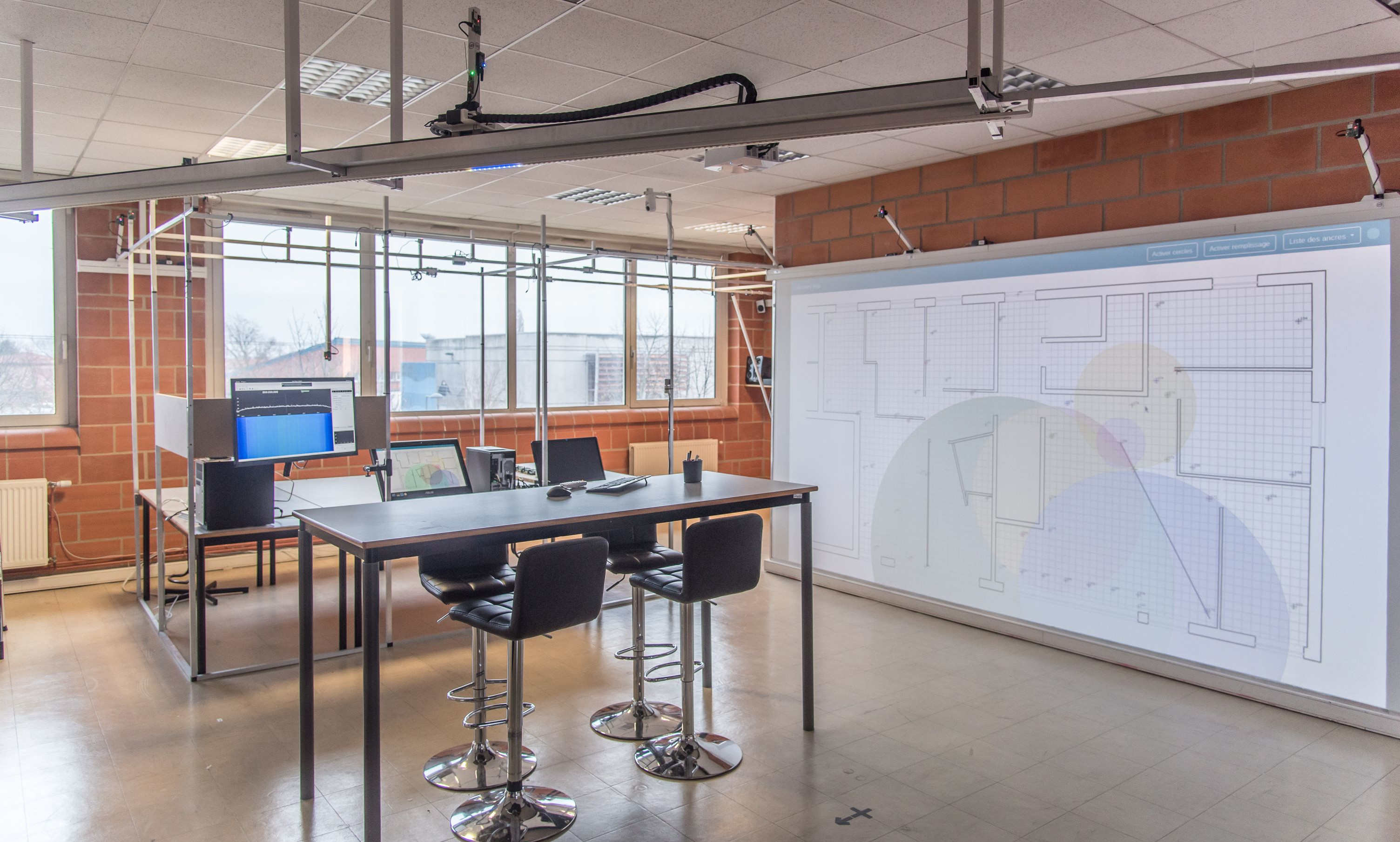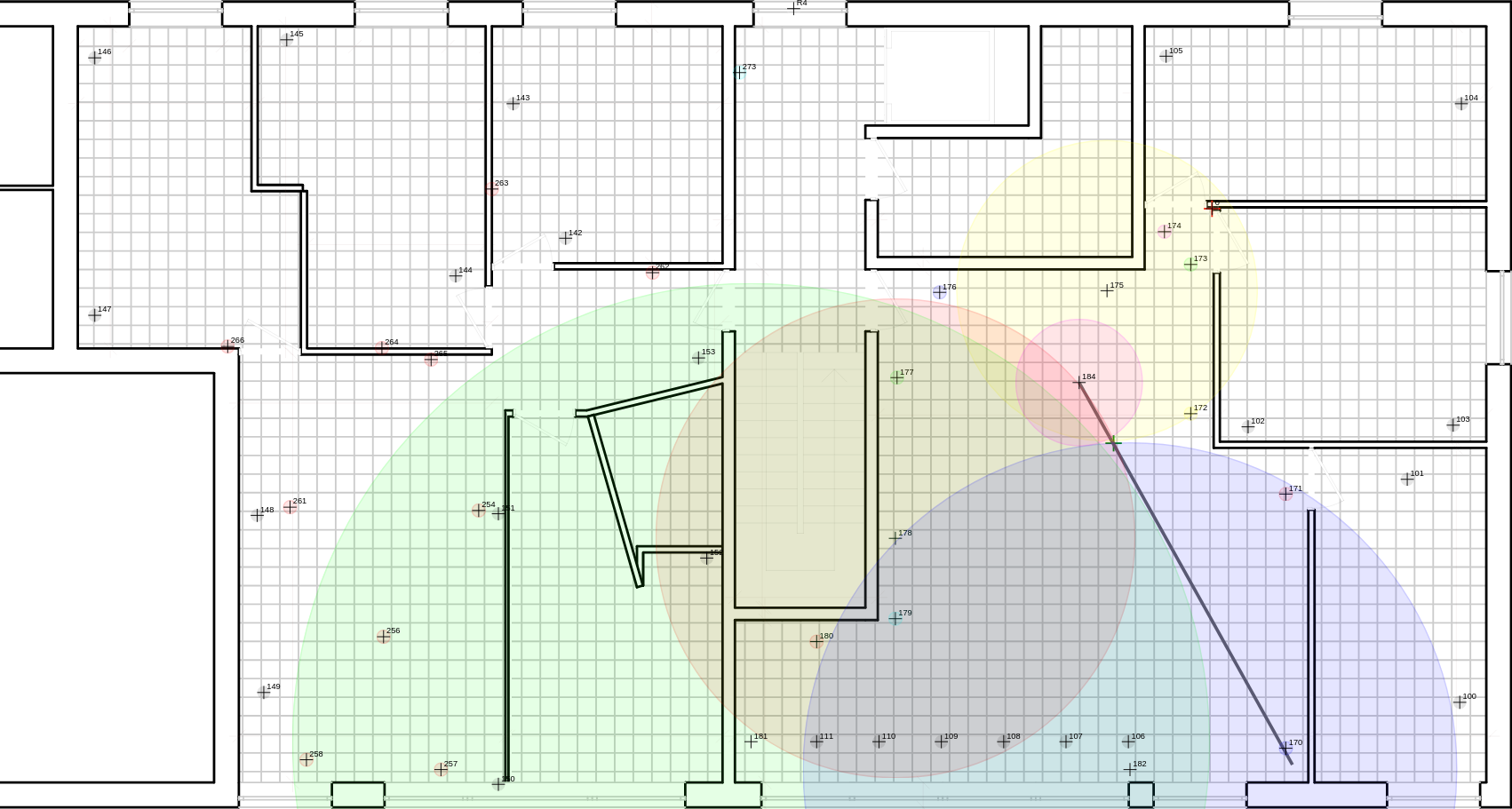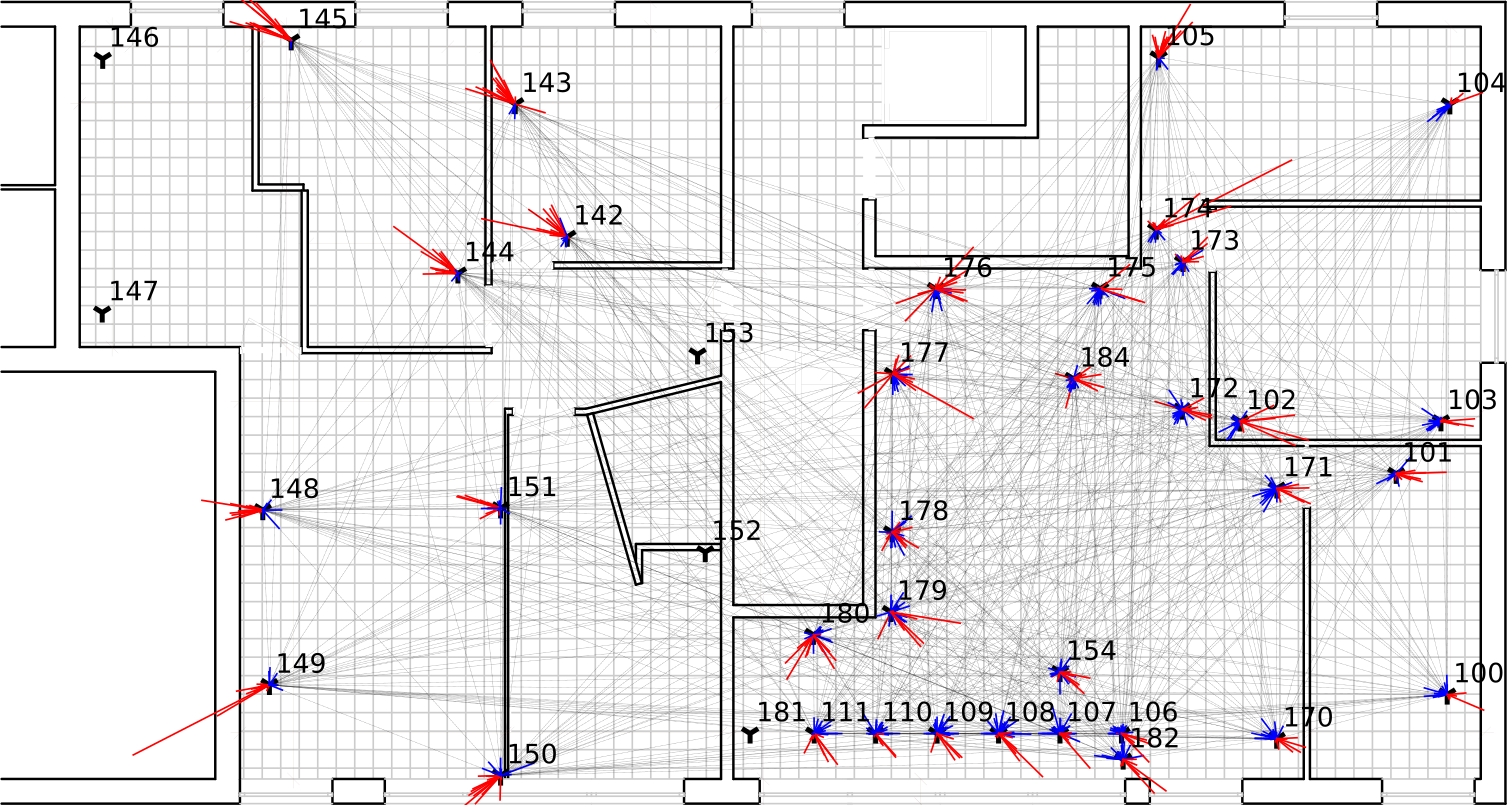Objectives
The LocURa4IoT testbed has been designed and deployed to meet the demand for an evaluation platform for distance estimation (ranging) protocols between UWB nodes as well as communication paradigms for the UWB physical layer, including but not limited to:
- distance estimation (ranging) protocols between UWB nodes,
- performance evaluation of protocols using UWB-physical layer,
- fine synchronisation (ns) over wireless networks,
- performance of localisation algorithms and protocols,
- tests with humans in the loop.
LocURa4IoT in short
- 64 UWB nodes based on Qorvo DWM1001-dev and DWM3001CDK boards,
- fixed and mobile nodes, all true positions known with a cm-level precision,
- 3 sites: offices, apartment and anechoic chamber
- automated deployment of firmwares on the nodes via a simple python script

LocURa4IoT main site (Site 1)
Usage examples
- test and performance analysis of a new localisation algorithm on real ranging data,
- test and performance analysis of a new ranging protocol,
- usage of a localisation device with human in the loop,
- Non-Line of Sight (NLOS) situations detection and mitigation,
- fine synchronisation for Indutrial IoT scenarios,
Tools and data visualisation
Thanks to the MQTT bus, it is possible to implement n-lateration algorithms to compute mobile positions on the fly according to known positions (anchor nodes) and rangings, or even agents allowing the representation of data on maps.

Ranging results between one mobile and five anchors as circles

Positive (red) and negative (blue) ranging errors among 34 nodes
When the researcher/testbed user is on site, he benefits from several devices for viewing the results in real-time thanks to a 4m wide screen and a virtual reality headset.